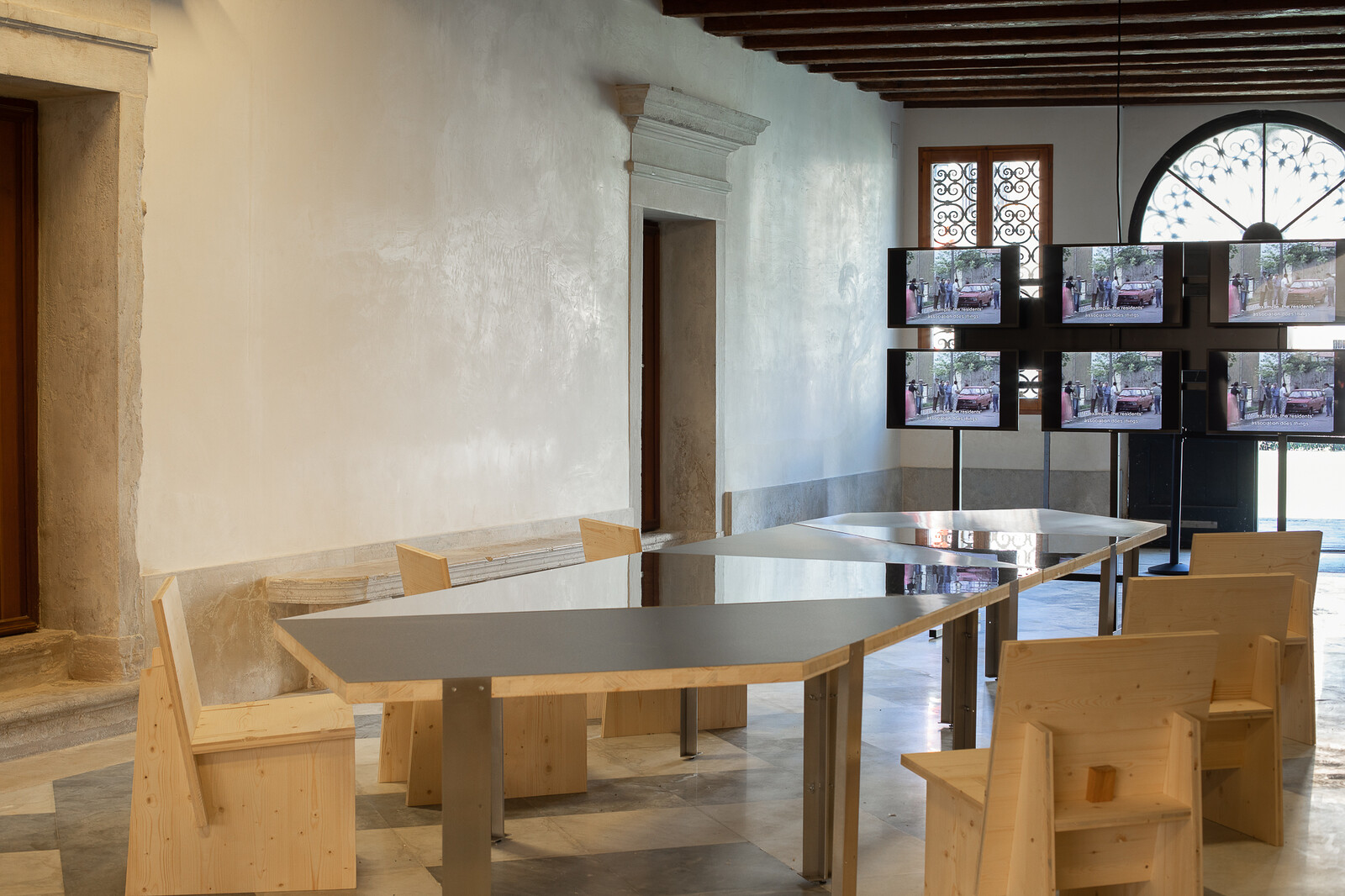September 23–24, 2021
In Conflict—the Portuguese representation at the 17th International Venice Architecture Biennale—presents its official inauguration programme to be held on September 23 and 24 at Palazzo Giustinian Lolin – Fondazione Ugo e Olga Levi. The event will take place according to the following programme:
September 23, 11am
No State Council
On-site debate
Now, what are the ways to proceed?
It could be said that the paths go in the direction of expansion, comprising domestication of nature, extraction, colonisation, urbanisation, and acceleration; or that they are redirected towards contraction, covering re-naturalisation, relocation, repair, and memory.
However, in an architectural design process, the paths start to wind and intersect, because all the players are committed to something different that they have to do now.
In the current time of processes being overly determined by economic factors, in the infrastructure and logistics of the cities how should we pursue the representation of less powerful ways of life? Can the design of a riverfront “return our gaze” to institutional powers when it is entangled with them? Can we build symbols on the streets that are as challenging as those displayed in museums? And what is demonstrated when some of these ways of life recover their representation in micro-utopic processes of uses of space?
It will be by debating the moments of conflict, negotiations, and alliances in concrete design processes that we will be able to distinguish the paths that face us.
Organisers:
Fernanda Fragateiro & Jorge Carvalho
Participants:
Ângela Ferreira, Gérard Lambert, Paulo Tavares & Rui Mendes
3pm
Official inauguration of the Pavilion of Portugal
Curatorial team: Carlos Azevedo, João Crisóstomo, Luís Sobral, Miguel Santos
Director-General for the Arts: Américo Rodrigues
Minister of Culture: Graça Fonseca
Launch and presentation of the catalogue In Conflict by the editorial team/curatorial team
4pm
Guided tour of the exhibition In Conflict by the curators
5:30pm
Cocktail open to the public and press
RSVP to comunicacao [at] dgartes.pt.
September 24, 11am
Caring Assemblies: Positions on a Space-to-Come
On-site debate
There is no need to read Butler or Agamben to understand that there are bodies that matter more than others. Spatial practice, operating between the submission to liberal contexts and a claimed “autonomy,” systematically excludes bodies, agents and entities. Activists, citizens, and platforms in 2008-crisis-ridden cities built powerful protocols and narratives that unveiled the power of architecture as a tool for political violence. Contemporary thought and new political imaginaries have outlined the fields of a space to come. But, how to construct spatial practices that care of and care for while facing the conflicts that capitalist production frameworks present? How can we build a caring architectural practice beyond social reproduction and human bodies? Which should be the vectors of spatial practice to-come? Caring assemblies proposes the creation of an assemblage of discourses and narratives, consensus and dissensions, towards an architecture of care, notes for a committed, critical, and care-ful spatial practice.
Organisers:
Bartlebooth - Antonio Giráldez Lópes & Pablo Ibáñez Ferrera
Participants:
Candela Morado, Husos, Isabel Gutiérrez Sánchez & Mariana Pestana
In Conflict
The Portuguese Pavilion challenges the public to participate through two complementary moments: exhibition and debate.
The exhibition, at Palazzo Giustinian Lolin in Venice, provides a narrative of Portuguese architecture through democracy, based on seven processes affected by material destruction, social relocation and popular participation. All of these were the subjects of broad media coverage, their struggles amplified by the press—taken here as a barometer of action and public involvement.
These processes are testimonies of a democracy that began with an impoverished Portugal, facing deep housing failures, which were aggravated by the demographic urgency of decolonisation. Today, more than four decades of democracy later, this reality remains fragile, marked by the persistence of informal neighbourhoods, by urban growth based on speculation in urban centres and by the abandonment of the interior of the country.
These cases constitute milestones along the exhibition journey. Based on each one of them, other projects with affinities to the problematic, scale or modes of action are called up for discussion. By bringing together their clashes—which remain in the Portuguese collective memory—these processes build a broad and cross-cutting portrait of the first 47 years of Portuguese democracy viewed through its reflection in Portuguese architecture.
In Conflict seeks, through an exhibition and debates, to consider the role of architecture as an artistic, public, political, and ethically-bound discipline. Faced with the impossibility of solving all contingencies, it is urgent to consider how to create places where everyone has a seat at the table, to imagine how we will all project a common future.
For more info, view In Conflict presented by its curators here.
Press Office:
depA architects
press [at] inconflict.pt / T +351 912 573 873
Press pack

